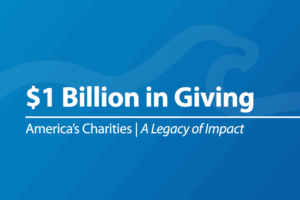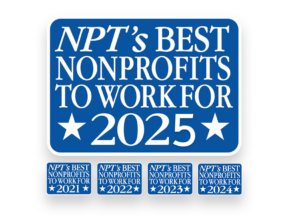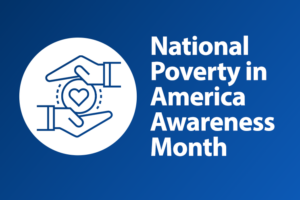Sarah Ford | March 31, 2015
The Impact of Skills-Based Volunteering
Tides are changing in the social good sector
Guest Blog by Kimberly Dulin, Catchafire
Leaders are beginning to connect the dots between nonprofits, skilled professionals, and corporate social responsibility like never before, and skills-based volunteering is the common thread.
In today’s world, people are hungry to infuse their life with purpose, and holding a 9-5 is simply not enough. Skills-based volunteering is the intersection of that passion and purpose; it allows professionals to find a cause that excites them and make an impact by sharing skills.
Skills-based volunteering is quickly becoming one of the most sought-after ways to give back. In fact, 4 million professionals from LinkedIn have already raised their hands insisting on more opportunities for skills-based volunteering.
Here, we’ll explore how skills-based volunteering (SBV) benefits nonprofits and professionals alike.
What SBV means for Companies and Professionals:
As the engine of financial growth and a beacon of brand identity; thriving employees are integral to a company’s success in a competitive marketplace. Disengaged employees cost a company around $2,000 a year according to a Gallup poll, and with disengagement circling around 18% in the United States alone, it’s a problem that can’t be ignored. What’s the solution? Skills-based volunteering.
America’s Charities’ articulates how “skills giving” is reshaping the relationship between companies and nonprofits, as “[T]he corporate world is transforming from traditional workplace giving and days of service to full employee integration. We’re seeing that employees are giving their skills as a way to apply their talent as well as develop professionally and provide a more strategic level of volunteering to nonprofits.”
In addition to offering professional development and an opportunity for impact, skills-based volunteering also fosters cross-departmental collaboration and has been proven to boost a company’s performance: a company could outperform competitors by as much as 202% when employees are effectively engaged. According to Josh Bersin at Deloitte, the following statistics illustrate the impact of SBV for the professional:
● 78% of people who volunteer feel less stressed
● 76% report feeling healthier
● 87% develop team/people skills
● 81% develop stronger relations with their colleagues
Check out this example: In 2013, Netsuite.org answered the employee demand for purpose with SuiteVolunteers, an award-winning skills-based volunteering program through which employees have logged nearly 2,000 hours. Since the inception of SuiteVolunteers, 310 individuals have already volunteered their skills with 80 organizations on 125 projects. As a result, 85% of employees said the program makes them feel extremely proud to work at NetSuite and 78% claimed to have developed new skills.
What SBV Means for Nonprofits:
Thanks to skills-based volunteers, organizations are able to work from the ground-up, and in our recent blog about the fundamentals of skills-based volunteering in the nonprofit sector, we explore the top 10 ways in which nonprofits benefit from skills-based volunteering, ranging from filling in the gaps in your organization’s expertise to establishing a long-term, mutually beneficial relationship with a volunteer.
Case in point: When executive director Tricia Slavik first approached Catchafire in April 2014, all she had was “a great idea and a cool name.” As the founder of @Wit’s End, an online community providing targeted resources for those whose loved ones have mental illness, Tricia was looking for a way to take her impact to the next level. Ten months later, Tricia has completed 10 projects with skills-based volunteers from all corners of the world. From internal projects like a Market Analysis and a Website Audit, to user-facing projects such as a Social Media Plan and an Infographic, @Wit’s End is both building capacity and expanding their impact in a way that matches the organization’s vision.
With the right balance of strategy and opportunity, the financial and professional impact that skills-based volunteering makes for a nonprofit is insurmountable. As Lynne Filderman says, “If somebody says to me, ‘I have a team of 10 employee volunteers who can come in next month, can you use them?’ I consider it and don’t think we have a volunteer project for them.’ That’s because I am thinking in a very limited way about how to capitalize on this opportunity. But if someone says to me, ‘Lynne I can give you a marketer, a budget analyst, and a strategic planner how would you use them?’, the opportunity is framed in such a way as to change my mindset and allows me to consider utilizing volunteers and their talent very differently.”
Skills based volunteering is a movement that brings passion, purpose, and possibility to corporations, professionals and nonprofits. It enables different sectors to work collaboratively and share expertise while building capacity and making the world a better place one social good mission at a time.
Want more impact? See how these social good organizations have benefited from the help of skills-based volunteers through Catchafire.
 Kimberly Dulin creates content at Catchafire, the largest online, skills-based volunteer platform. Kimberly is always on-the-go spreading her love of nonprofits and the social good sector. She adores her place at Catchafire and is excited to light fires and change the world one [social] mission at a time.
Kimberly Dulin creates content at Catchafire, the largest online, skills-based volunteer platform. Kimberly is always on-the-go spreading her love of nonprofits and the social good sector. She adores her place at Catchafire and is excited to light fires and change the world one [social] mission at a time.
Get Resources and Insights Straight To Your Inbox
Explore More Articles
$1 Billion in Giving: America’s Charities Reaches a Historic Milestone
A testament to the impact of mobilizing the power of giving. We have some extraordinary news to share. In 2025, America’s Charities crossed a threshold that few organizations…
America’s Charities Named ‘Best Nonprofit To Work For’ For Fifth Consecutive Year
Washington, D.C. – April 1, 2025 – America’s Charities, the nonprofit that mobilizes the power of giving as a leading provider of volunteering, workplace giving,…
Get Resources and Insights Straight To Your Inbox
Receive our monthly/bi-monthly newsletter filled with information about causes, nonprofit impact, and topics important for corporate social responsibility and employee engagement professionals, including disaster response, workplace giving, matching gifts, employee assistance funds, volunteering, scholarship award program management, grantmaking, and other philanthropic initiatives.




